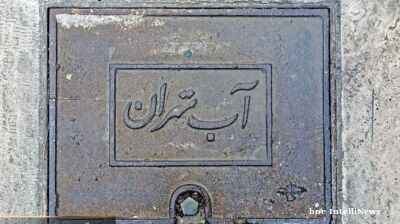Iraq has announced a plan to plant 10mn palm saplings and various trees across Baghdad and other provinces as part of a government initiative to tackle the growing issue of desertification in the country.
Although not a new phenomenon, Iraq has seen an increase in deadly sandstorms in recent years. A few decades ago, the country experienced dust or sandstorms once or twice a year; however, more recently the frequency of storms has increased despite warnings from international bodies. These events, although a common occurrence, have led to the deaths of thousands of people with underlying conditions, including respiratory illnesses. Sandstorms have increased so much that they now reach as far north as the Caspian Sea in Iran, something unheard of more than two decades ago.
Mahdi Suhair al-Jubouri, Deputy Minister of Agriculture, revealed to the state-run Al-Sabah newspaper that the Ministry of Agriculture has already exceeded the initial targets set by Prime Minister Mohammed Shia' Al-Sudani.
The campaign, launched in March last year, originally aimed to plant 5mn palm saplings and trees over three years. However, in just one year, more than 6mn saplings have already been planted, the newspaper said.
"We are determined to surpass the 10mn mark as part of the ongoing governmental campaign, which has been actively carried out by municipal departments in Baghdad and the provinces since last year," said al-Jubouri.
"This effort includes planting along highways, in schools and universities, and in collaboration with Saudi Arabia and Kuwait to launch the Green Belt initiative around central and southern Iraq, supported by international organisations."
The country, ranked fifth globally in drought vulnerability, has seen a significant reduction in arable land due to climate change, heat waves and decreased water flow in the Tigris and Euphrates rivers, according to Zuzana Ali Saleh, deputy head of the parliamentary committee on agriculture, water and marshes.
"Desertification and drought are major problems requiring urgent action to mitigate their catastrophic effects on the environment, agriculture and society," Saleh told Shafaq.
The committee’s efforts include watering the planted saplings – palm trees, olive trees, willows, eucalyptus and citrus – using drip irrigation systems and fixed sprinklers to ensure their sustainability.
Another campaign, set to begin on September 5, aims to plant 500 giant "Piza" trees in Baghdad every five days, as part of a larger national tree-planting drive starting September 15, according to government spokesperson Adnan al-Arabi.
These efforts build on Prime Minister Mohammed Shia al-Sudani's March 2023 initiative to plant 5mn trees and palm trees nationwide. Agricultural ministry spokesman Mohammed al-Khuzaie reported that this target has been exceeded, with 6.4mn saplings planted to date.
Trees, in all their variations, help fight desertification, reduce soil erosion and increase water availability, which is vital to fighting the desertification trend in the country. They are also one of the first lines of defence in fighting the growing peril of sandstorms across the world as they act as an effective filter when the wind picks up particulates in dry zones.
The United Nations has classified Iraq as one of the most vulnerable countries to climate change. Temperatures continue to rise, leading to more heat waves, droughts, sandstormsand desertification. More than 15% of Iraq’s total surface is currently categorised as being in a state of desertification, with that growing each year despite previous efforts by the Baghdad and Kurdish authorities.
Over the past 25 years, Iraq has lost significant vegetation due to climate change, wars, declining rainfall and reduced water levels in the Tigris and Euphrates.
The frequency and intensity of sandstorms in Iraq have surged, with some regions experiencing as many as eight major dust events within a six-week period. This has not only affected public health but also led to the closure of airports, schools and government offices.
The situation is further worsened by Iraq's dwindling water resources, driven by declining rainfall and the reduced flow of the two major rivers.
These factors contribute to the broader ecological crisis in the country, making efforts like the tree-planting initiative crucial for mitigating the effects of climate change and stabilising the environment.
The tree-planting campaign is being carried out in several Iraqi provinces, including Baghdad, Basra and Diyala – the areas which have seen some of the worst effects. This is done while local farmers and citizens plant trees, with the support of local and foreign technical experts and resources provided by the government and international organisations.
The region has faced significant heatwaves throughout 2024, with water temperatures in the Persian Gulf reaching record levels, while Kuwait, Iran and Iraq have all reported record-breaking temperatures.
Years of poor control of the situation in part due to oil extraction, a large expansion of urban areas and the growth of dam projects further north in Turkey have all contributed to the ongoing crisis in the country.
Former Iranian President Hassan Rouhani said in July 2017 that certain major dam projects on the Euphrates and Tigris have ravaged water resources, according to RFE/RL.
He made the comments in Tehran during a regional conference on sandstorms, which are sometimes caused by dried out river beds.
bneGREEN

Kyrgyzstan says neighbours “upset” by country’s lack of water
“This year we were supposed to overcome shortages, but instead, they have intensified,” deputy head of cabinet tells Uzbekistan and Kazakhstan.

EXPLAINER: What is the EU’s CBAM and how will it affect global trade from 2026?
The European Union’s Carbon Border Adjustment Mechanism (CBAM) will enter its full operational phase on January 1, 2026, marking a major shift in global climate and trade policy.

Iran faces critical water crisis after driest year in five decades
Iran faces critical water crisis after driest year in five decades with 40% nationwide rainfall drop.

Global renewables to double by 2030, but IEA warns momentum must accelerate
Global renewable energy capacity is on course to double by 2030, reaching 4,600 GW—comparable to the current combined total of China, the European Union and Japan—according to the International Energy Agency’s Renewables 2025 report.




